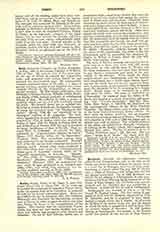

Berti, GIOVANNI LORENZO, an Italian theologian, b. May 28, 1696, at Sarravezza, Tuscany; d. March 26, 1766, at Pisa. His parents were of the lower class. At the age of fifteen he entered the Augustinian order, and preached with success before he had attained his twenty-third year. He subsequently occupied important offices in his order, i.e. those of general secretary, prefect of the Angelica (the former valuable library of the Augustinians at Rome), general assistant. He first taught philosophy, then theology, at Sienna, Florence, Bologna, Padua, Rome, and finally (1748) became professor of ecclesiastical history at Pisa. He suffered, in 1762, a stroke of apoplexy which was repeated and eventually caused his death. His literary career was an agitated one. By order of Father Schiaffinati, his Superior General, he wrote the extensive work “De Theologicis Disciplinis” (Rome, 1739-45), an exposition of the theological teaching of St. Augustine. The book, which appeared in several editions, was vehemently attacked by d’Ise de Saleon (who was successively Bishop of Agen, 1730-35, Bishop of Rodez, 1735-46, and Archbishop of Vienne, 1747-51) and by Languet de Gergy, Archbishop of Sens (1731-53). They accused Berti of Jansenism. In answer, the latter published: (I) “Augustinianum Systema de Gratin” (Rome, 1747; Munich, 1750); (2) “In Opusculum” (Leghorn, 1756). The accusations against Berti were submitted to the Roman authorities. Benedict XIV (1740-58) had his book examined and found its teaching sound. Besides other works published in this controversy, Berti wrote: (I) “Commentarius de Rebus gestis S. Augustini” (Venice, 1756); (2) “S. Augustini Quaestionum de Scientia, . dilucidatio” (Pisa, 1756); (3) “De Haeresibus Trium Priorum Saeculorum” (Bassano, 1769); (4) “Historia Ecclesiastica” (Florence, 1753), an ecclesiastical history, which he later published in an abridged form (Pisa, 1760), and which, thus shortened, was ‚Ä¢ frequently reedited (recently at Turin, 1892).
N. A. WEBER

